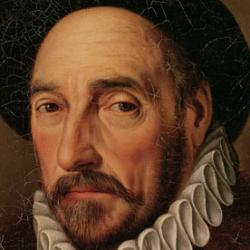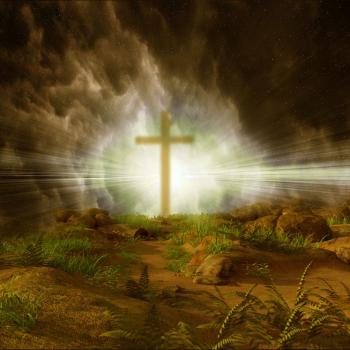American evangelicals, who have long understood the United States as a thoroughly Christian nation, once interpreted the consequences of their Christian heritage in ways quite different from evangelicals today.
This is illustrated in the Sixth General Conference of the Evangelical Alliance, which brought evangelical Christians from all over the world to New York City in 1873. Anyone was invited to participate who could affirm a belief in the inspiration of the Bible, the Trinity, the incarnation of Jesus Christ and his atonement for sins, justification by faith alone, the work of the Holy Spirit in the world, and the resurrection of the body. The minutes of this gathering and the host of addresses delivered by the participants provide a revealing snapshot of American evangelicalism in the wake of the Civil War.
Many speakers came from the United States, and lectured on topics that had particular relevance for evangelical attempts to sustain the country's Christian identity. Sessions were devoted to atheism, Catholicism, the family, philosophy, world religions, wealth, literature, education, religious liberty, missions, caring for the sick, crime, and industry. Few topics (with the exception of race and immigration) escaped coverage during this eleven-day meeting. There was even a session on cruelty to animals.
Theodore Dwight Woolsey, a former president of Yale College and then president of the Evangelical Alliance, asked the convention whether the United States should be considered a "Christian nation." He answered in the affirmative. The United States of America was a "Christian country" because "the vast majority of people believe in Christ and the Gospel" and "our civilization and intellectual culture" were built on the foundation of Christianity.
If the United States was a Christian nation, then it was up to evangelicals, for the sake of "posterity," to make sure it remained that way. Attendees spent days listening to talks on topics related to social and moral reform. For example, today's evangelicals might be surprised to learn that their 19th-century spiritual ancestors were concerned about the plight of workers in the ever-burgeoning industrial world of the West. If America was going to be a Christian nation, then the tensions and hostilities between labor and business needed to be resolved in a Christian manner. William G. Allen, the president of Girard College in Philadelphia, called upon labor interests to stop their violent strikes and use their power to "promote peace on earth and good-will among men." The resources devoted to waging "war" against big business might be better used to "feed the hungry and clothe the naked." Was it too much to ask "nations professing of Christ" to be "imbued with something of the spirit of Christ?"
But labor was only part of the problem. Allen urged the federal government to support the eight-hour workday, require that labor disputes be resolved through arbitration rather than strikes, design equitable apprenticeship laws, reserve public lands for settlers rather than railroad companies and speculators, and establish a bureau of labor statistics. While Allen believed that evangelicals could support many reforms advocated by the labor movement, he rejected the movement's attempts to prevent the importation of immigrants from China. If unions were willing to promote "the solidarity of labor and co-operation of working men everywhere," they should not make distinctions between European and Asian workers. His address both supported capitalism and defended labor. The goal was reconciliation, befitting "nations professing Christ."
Labor reform and Sabbath reform went hand in hand at this meeting. Reverend Mark Hopkins, the former president of Williams College, urged the federal government to pass laws protecting the observance of the Christian Sabbath (Sunday). Hopkins argued that the Fourth Commandment ("Remember the Sabbath day, and keep it holy") should be embedded in American law in much the same way that commandments prohibiting murder, stealing, and "bearing false witness" were staples of the legal system. If that was not enough to convince naysayers, Hopkins emphasized Jesus' words in Mark 2:27—"The Sabbath was made for man, not man for the Sabbath"—to argue that the human body was created by God in such a way that it required a day of rest. "Men and animals," Hopkins wrote, "will have a better health and live longer; will do more work, and do it better, if they rest one day in seven, than if they work continuously." Since rest was a human right endowed by God, how could a nation with Christian roots not endorse the Sabbath?
Temperance reform had also long been part of the social consciousness of American evangelicals. Henry A. Nelson, a professor at Lane Theological Seminary, suggested that the "drunkard" was a "sinner against God" and a "criminal also toward civil society." Much of Nelson's arguments countered those of libertarian-minded Americans who believed that government enforcement of morality in this area was a violation of their civil rights. He concluded that giving Americans the right to drink excessively would ultimately violate the rights of others. "Shall the rum-sellers' rights of property be held more sacred, be treated more tenderly, be guarded more carefully," he asked, than "the right of the mother to rear her boy unexposed to the enticements of the grog-shop?" By following "the calm voice of Christianity, which affirms the higher sacredness of the right to rear children in virtue and piety, and to dwell in peaceful homes," Americans might form a better—more Christian—society for all.





